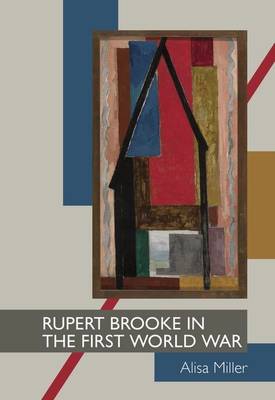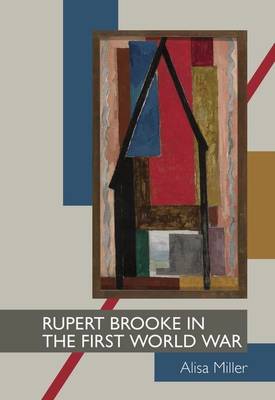
Je cadeautjes zeker op tijd in huis hebben voor de feestdagen? Kom langs in onze winkels en vind het perfecte geschenk!
- Afhalen na 1 uur in een winkel met voorraad
- Gratis thuislevering in België vanaf € 30
- Ruim aanbod met 7 miljoen producten
Je cadeautjes zeker op tijd in huis hebben voor de feestdagen? Kom langs in onze winkels en vind het perfecte geschenk!
- Afhalen na 1 uur in een winkel met voorraad
- Gratis thuislevering in België vanaf € 30
- Ruim aanbod met 7 miljoen producten
Zoeken
Omschrijving
Rupert Brooke died in April 1915, on the eve of the Gallipoli landings. During the First World War Brooke was the iconic poet-soldier, adored and mimicked by readers and would-be writers--both in and out of uniform--with an international following that has neither been examined nor explained since. The general shift in attitudes toward war and the manner in which the war poets are presented meant that Brooke was recast as the exemplar of pre-war innocence, forever swimming in faintly saccharine, nakedly patriotic streams born of his famous poems. Rupert Brooke in the First World War takes a celebrity of the war who became an idol for fellow writers, politicians, literary elites and the general public, and tells the story of his life and famously romantic death, providing readers a fuller sense not only of the human being and his singular life and circumstances, but also of the world he inhabited, and the passions and tastes of men and women living through a period of great upheaval.
Specificaties
Betrokkenen
- Auteur(s):
- Uitgeverij:
Inhoud
- Aantal bladzijden:
- 296
- Taal:
- Engels
- Reeks:
Eigenschappen
- Productcode (EAN):
- 9781800859579
- Verschijningsdatum:
- 1/04/2021
- Uitvoering:
- Paperback
- Formaat:
- Trade paperback (VS)
- Afmetingen:
- 152 mm x 229 mm
- Gewicht:
- 435 g

Alleen bij Standaard Boekhandel
+ 203 punten op je klantenkaart van Standaard Boekhandel
Beoordelingen
We publiceren alleen reviews die voldoen aan de voorwaarden voor reviews. Bekijk onze voorwaarden voor reviews.









